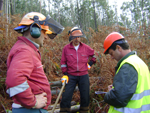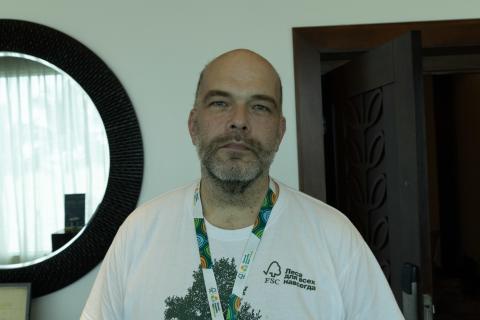Turning FSC thinking on its head
FSC’s success among larger forest operations is commendable, yet small forest owners who collectively manage substantial areas of forestland remain largely unengaged.
Eighteen years mature, FSC’s systems remain too challenging for smallholders. It’s time to take a different approach.
The silent stewards
Smallholders manage significant forest areas in many regions of the world and are FSC’s ticket to extensively expanding certified area, safeguarding important social and environmental values. In Europe for example, approximately 16 million smallholders own 55 per cent of the forestland, and contractors service many of these owners.
While FSC recognises it needs to do more to engage smallholder and is currently reaching out to the FSC community as it assesses the role contractors could play in its system, the options on the table are not radical enough to overcome barriers facing smallholders today.
“It’s time to turn our thinking on its head and look at the impact we want to achieve and then design the systems in order to achieve that. The last eighteen years have shown us that adapting FSC’s existing systems created largely for bigger operations doesn’t work for small properties,” says Peter Feilberg, NEPCon CEO.
The missing scenario
 We reported previously that four scenarios are outlined in the FSC Discussion Paper. While Scenarios 3 and 4 – involving FSC creating its own or recognising others’ contractor certification system – go far in addressing many of the current challenges, under these proposals the responsibility still remains with the forest manager.
We reported previously that four scenarios are outlined in the FSC Discussion Paper. While Scenarios 3 and 4 – involving FSC creating its own or recognising others’ contractor certification system – go far in addressing many of the current challenges, under these proposals the responsibility still remains with the forest manager.
“Scenario 5 is missing from this list. When dealing with smallholders, we need to move away from this set idea that forest managers need to be the ones who are certified. Let us rather explore whether it is enough for the forest contractor to be certified”, says Mr Feilberg.
He continues, “Instigating a step-change in engagement with smallholders will require radical changes to the current set of requirements applying to small and low intensity forest managers. The options outlined in the FSC Discussion Paper do not adequately address some of the technical and financial barriers”.
Contractors commonly service small forest owners today because they possess the knowledge and skills needed. Many of the existing documentation requirements, such as those for management planning and monitoring, are not applicable to small properties. The current system imposes annual costs making it financially questionable due to infrequent harvesting.
Providing they work according to strict social and environment requirements, contractor certification has a huge potential to contribute to FSC’s mission.
Forests of the World Technical Adviser Jakob Ryding explains: “We need initiatives like contractor certification if we are to reach out to small forest owners, but my biggest concern is how to ensure the long-term commitment when dealing with very small forests, especially in areas with High Conservation Values.”
Once a forest is harvested in accordance with the FSC requirements and the certified timber is sold, the forest manager doesn’t necessarily have the long-term financial incentives that larger forest areas have from regular harvesting. This risk may be heightened where forest owners use certified contractors as they are not involved in the management planning.
“Contractor certification could work really well in Europe and the US, where smallholders readily use contractors. But I think we still need a different solution for the tropics where smallholders typically harvest the trees themselves”, says Mr Ryding.
Your opinion counts
Is it not riskier that FSC doesn't fulfil its potential for positively impacting more forestland by not adequately engaging with smallholders? This is for the FSC community to decide, and you are strongly encouraged to participate in the consultation on the FSC Discussion Paper on its ‘Policy on Forestry Contractor Certification’ by 19 September 2012.
> Comment on the FSC Policy on Forestry Contractor Certification – Discussion Paper



